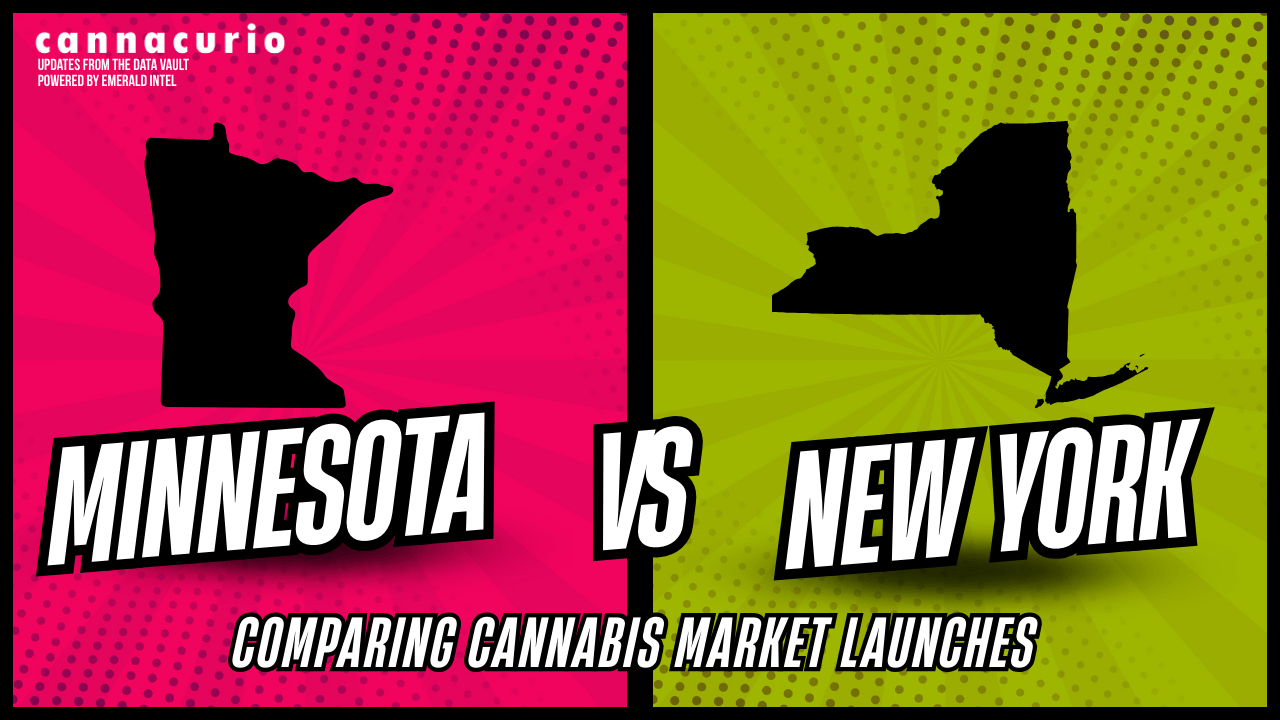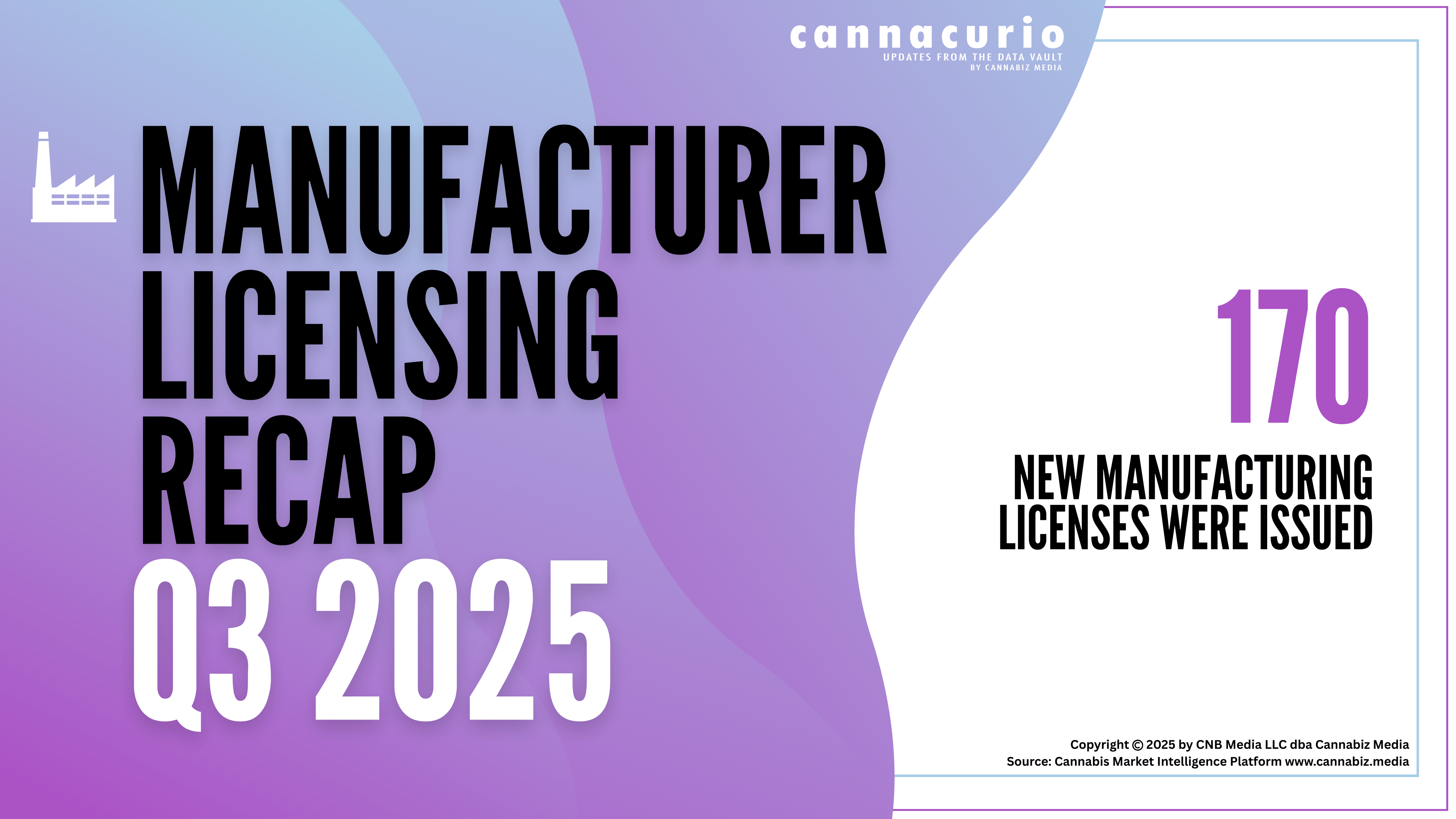
Benefits of CRM to Cannabis and Ancillary Businesses
Customer relationship management (CRM) involves managing all interactions with every customer and lead to improve a company’s sales and reduce churn. CRM is important to all businesses working in and with the cannabis industry today.
In fact, the benefits of CRM to cannabis and ancillary businesses of all sizes are far-reaching – affecting not just sales but also marketing and customer service. Following are 10 key benefits of using a CRM system to help you understand why you need to prioritize managing customer relationships in an organized, strategic way.
1. Improved Lead Generation and Qualification
Everyone is not a potential sales lead for your business, and they won’t all respond positively to the same types of communications. Thanks to the data you collect in your CRM software about leads, you can segment your leads and send them the most relevant email communications.
Engagement data can tell you the right leads to target, where leads are in the marketing funnel, and help you identify qualified leads to send sales messages or pass to the sales team for one-to-one outreach. As a result, the sales team will focus its time only on the most qualified leads.
2. Streamlined Lead and Client Management
A CRM tool is a centralized database with all of the information your business has about each lead and customer, so it’s quick and easy for anyone to find the information they need when they need it. The data provides historical perspective for each lead and customer, which can inform the communications your marketing, sales, and customer service team members have with each contact.
Not only does having instant access to all of this data streamline processes, but it also reduces redundancies. All data lives in a single location instead of in different team-owned silos. Furthermore, centralization improves customer satisfaction when communications are tailored to each contact’s personal experiences with your brand.
3. Increased Customer Retention, Loyalty, and Advocacy
It costs less to retain a customer than it does to find a new one, so use the data in your CRM software to target each of your niche customer audience segments and send them the right messages. Track their engagement to identify potential problems or opportunities and address them quickly with sales outreach or timely email marketing campaigns.
Use the data in your CRM to cross-sell and upsell to existing customers based on the historical purchase information you’ve collected over time. If a customer hasn’t made a purchase in a long period of time, send re-engagement email marketing campaigns to motivate them to buy again. The more targeted and relevant the communications and offers are for each customer, the better your results will be.
4. Increased Revenue and Profits
Since you can track marketing and sales processes in a CRM tool, you’ll know what’s working and what’s not working. With tighter processes, more sales will close, fewer leads will be lost, and customers will make more repeat purchases. Why? Because your teams can set up reminders and follow-ups to communicate with them at the best times without fail.
5. Improved Efficiency and Productivity
A robust CRM tool will free up employees’ time so they can focus on revenue-generating activities rather than mundane tasks, searching for information, or repetitive data entry. Everything team members need is at their fingertips in a CRM, which means employees can focus on creating the best communications and experiences for customers to drive a higher return on investment and better results for the company’s bottom-line.
6. Deeper Customer Insights and Data Analysis
Data is great, but if it’s not organized in a way that make it usable, data is meaningless. CRM software provides metrics and data that can be leveraged to create more effective email marketing campaigns, sales outreach, customer service, and more. With reliable data that is easy to access, employees can segment lead and customer audiences more effectively and optimize communications for each audience to get the best results.
7. Better Audience Segmentation
Audience segmentation is critical to lead generation, nurturing, and conversion. If your business sends irrelevant communications to prospects (or customers), they won’t be happy. They won’t trust your brand as a reliable source of relevant information, which means they’ll be more likely to unsubscribe from your email marketing messages, ignore your sales calls, and possibly worse
For example, they might mark your email campaigns as spam hurting your future email deliverability, or they could share negative opinions about your brand on social media hurting your reputation and future sales. Use the data in your CRM to segment and provide the most relevant content, communications, and experiences to each contact – always.
8. Improved Collaboration and Communications
Integrated sales and marketing teams drive better results than separate departments that work in their own silos. CRM software can be used by employees in a variety of departments across your company to collaborate and communicate in real-time. Changes, updates, feedback, tasks, notifications, and more can be seen by everyone, so all team members are always on the same page and working with the same data about each contact.
9. Enhanced Customer Service
Your customer service team can use CRM software to understand customer histories and deliver the best support at the right times. Customer satisfaction will rise when customers don’t have to repeat themselves and re-explain their problems or histories. All of the information is available to the support agent in the CRM tool.
10. Better Marketing Funnel and Sales Pipeline Management
Sales and marketing integration is critical for businesses today. Using a CRM tool is an easy way to bring these two teams together. You can use CRM software to track lead engagement through the entire marketing funnel and identify unqualified, marketing qualified, and sales qualified leads. CRM software makes it easy to see what is and isn’t working in your marketing strategy so you can make changes and optimize results quickly.
In addition, CRM software provides data on leads that can help you identify weaknesses in your sales pipeline, analyze sales call and email success rates, and find opportunities to improve. The sales team can also communicate with the marketing team to share insights about leads being passed on so the marketing team understands what truly defines a sales-qualified lead. Ultimately, more qualified leads can be generated and more sales will close.
Key Takeaways about the Benefits of CRM to Cannabis and Ancillary Businesses
CRM is critical for cannabis and ancillary businesses as markets grow and the industry becomes more competitive. CRM software can be used to store and manage lead and customer data so you can better manage your brand’s relationship with each contact through improved marketing, sales, and customer service.
If you need a CRM tool to connect with cannabis and hemp license holders in the U.S., Canada, and international markets so your business gets the benefits lifted above, schedule a demo of the Cannabiz Media License Database.
Need more insights?


.png)
